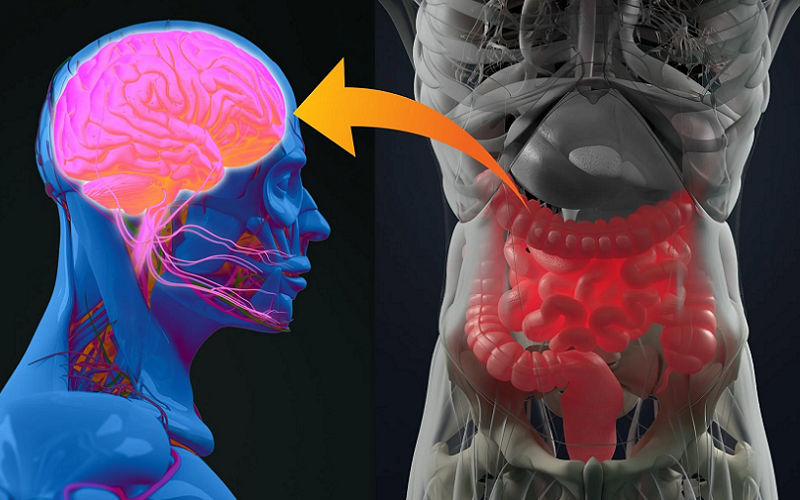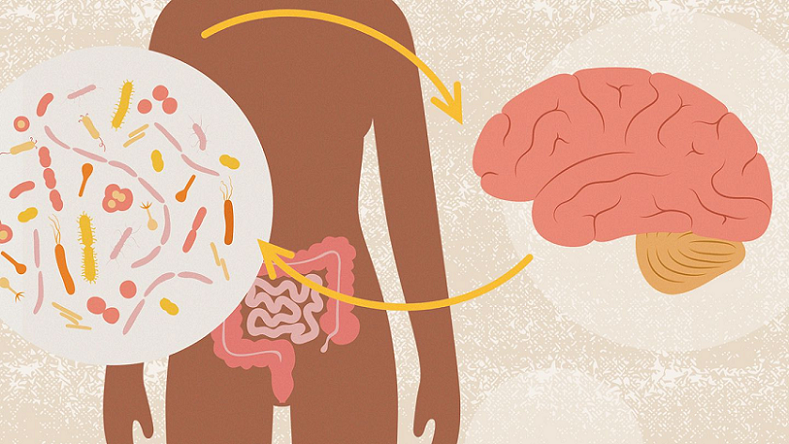
The complex and fascinating world of human health continuously evolves with the emergence of groundbreaking research. One of these expanding fields is Nutritional Psychiatry, an area that focuses on the significant role that diet and nutrition play in our mental health. Here we explore how what we eat influences our gut health, and in turn, our mental well-being. The gut-brain axis, the bidirectional communication between our gut and our brain, is central to our exploration.
Contents
Introduction to Nutritional Psychiatry
The field of Nutritional Psychiatry provides a unique blend of nutrition science and mental health, integrating our understanding of dietary patterns, nutrients, and mental well-being. Over the past few decades, a growing body of research has pointed to the pivotal role that diet and nutrition play in mental health, forming the foundation of this evolving discipline.
Definition and Scope of Nutritional Psychiatry
Nutritional Psychiatry is a relatively new field of study that investigates the role of diet and nutrition in the etiology, prevention, and management of mental health disorders. The scope of Nutritional Psychiatry spans from studying the impact of various nutrients on brain health and function to examining the correlation between certain dietary patterns and mental health outcomes.
The discipline also investigates the potential role of dietary interventions in managing mental health conditions and promoting overall mental well-being. By understanding the relationship between diet and mental health, Nutritional Psychiatry provides a new perspective on mental health care, suggesting that the food we consume can significantly impact our mental well-being.
Historical Background and Current Developments
Historically, the connection between diet and mental health has been largely overlooked in psychiatric research and practice. It wasn’t until recent decades that a growing body of evidence started to highlight the critical role that diet plays in influencing our mental health. This paradigm shift has led to the emergence of Nutritional Psychiatry as a distinct discipline.
Early studies in Nutritional Psychiatry focused primarily on the role of individual nutrients in brain health and function. However, contemporary research in the field has expanded to include the study of overall dietary patterns and their impact on mental health. Furthermore, the advent of microbiome research has introduced a new dimension to Nutritional Psychiatry, examining the relationship between gut health and mental well-being.
The field has seen increasing acceptance and recognition over the past few years, as reflected in the rise of dedicated research centers and conferences. Current developments in Nutritional Psychiatry include the use of machine learning and artificial intelligence to develop personalized dietary interventions and the exploration of gut-brain connections using advanced neuroimaging techniques [1].

Understanding the Gut-Brain Connection
A key component of Nutritional Psychiatry is the exploration of the gut-brain axis, a term that describes the bidirectional communication between our digestive system and our brain. This complex network of communication plays a significant role in maintaining our health and well-being, influencing everything from our mood and stress levels to our mental alertness.
Brief Overview of the Gut-Brain Axis
The gut-brain axis is a communication network that links the central nervous system, which includes the brain and spinal cord, with the enteric nervous system, the complex network of neurons that governs the function of the gastrointestinal tract. This axis ensures that the brain and gut work together in harmony, coordinating their functions to maintain overall health.
Interestingly, the gut has often been referred to as the “second brain” due to its large number of neurons and the wide range of neurotransmitters it produces. These neurotransmitters, including serotonin, a key hormone that stabilizes our mood, are produced in the gut and influence our feelings and emotions.
The Role of the Vagus Nerve
The vagus nerve is a crucial player in the gut-brain axis. This nerve is the primary route of communication between the gut and the brain, sending signals in both directions. When your gut is in distress, for example, the vagus nerve sends a message to your brain, which may lead to feelings of discomfort or unease.
The vagus nerve also helps to control your heart rate and digestion, among other things. There’s evidence to suggest that stimulation of the vagus nerve, through deep breathing exercises or other methods, can have various health benefits, such as reducing inflammation and improving mood [2].
Implications of a Healthy Gut-Brain Communication
Maintaining a healthy gut-brain communication is essential for overall mental and physical health. When this communication is functioning properly, it ensures efficient digestion, balanced mood, and optimal cognitive function. Conversely, when this communication is disrupted, it can contribute to various health problems, including digestive issues, mental health disorders like anxiety and depression, and even neurodegenerative diseases such as Parkinson’s disease.
The gut-brain axis also plays a role in managing stress. A healthy gut can influence the brain’s perception of stress and regulate stress response. Moreover, the gut-brain axis has an impact on our emotional responses and behaviors, indicating its potential role in psychiatric disorders [3].

Role of Nutrition in Mental Health
A pivotal aspect of Nutritional Psychiatry is the role of nutrition in mental health. What we eat influences the functioning of our brains and, by extension, our mood, thoughts, and overall mental state. The brain requires a consistent supply of nutrients to function optimally, and any deficiency or imbalance can have serious implications for our mental health.
Overview of Nutrients and Their Impact on Brain Function
Various nutrients are critical for brain health and mental well-being. For example, Omega-3 fatty acids, found in fish and some plant-based sources like flaxseeds, play a crucial role in maintaining brain health. They are vital components of cell membranes in the brain and are involved in brain cell communication.
Other nutrients like B-vitamins are essential for the synthesis of neurotransmitters such as serotonin and dopamine, which influence mood and other aspects of mental health. Minerals like zinc, magnesium, and selenium also play a critical role in supporting brain function and mental well-being.
Additionally, certain amino acids derived from protein sources in our diet, such as tryptophan, are precursors to neurotransmitters that regulate our mood and sleep.
How Poor Nutrition Affects the Brain and Mood
The impact of poor nutrition on physical health is well-understood; however, its effect on mental health is equally profound. A diet lacking essential nutrients can hinder the normal functioning of our brain and negatively affect our mood.
For example, deficiency in B-vitamins can lead to low mood, fatigue, and even depression. Low levels of omega-3 fatty acids have been associated with mood disorders and cognitive decline. Furthermore, poor nutrition can disrupt the balance of gut bacteria, which can affect the gut-brain axis and potentially lead to mental health issues.
Moreover, a diet high in processed foods and sugars can lead to inflammation and oxidative stress, which have been linked to mental health disorders like depression and anxiety [4].
The Concept of Brain Foods
The term “brain foods” refers to foods rich in nutrients that support brain health and mental well-being. These include omega-3 rich foods like fish and flaxseeds, antioxidant-rich berries, leafy green vegetables high in B-vitamins and folate, and foods high in flavonoids such as dark chocolate and tea.
Regular consumption of these “brain foods” can provide the necessary nutrients for optimal brain function, boost cognitive performance, and contribute to better mental health. The concept of “brain foods” underscores the importance of a nutrient-rich diet for maintaining mental well-being, a key tenet of Nutritional Psychiatry [5].

Gut Health and Its Impact on Mental Health
The health of our gut, particularly the balance of our gut microbiota, plays an essential role in our mental health. This relationship is mediated by the gut-brain axis, the bidirectional communication network linking our digestive system and our brain. Disruptions in our gut health can, therefore, have profound impacts on our mental well-being.
Understanding the Gut Microbiota
The gut microbiota, or gut flora, refers to the diverse community of microorganisms that inhabit our digestive tract. These include bacteria, fungi, viruses, and other microbes. A healthy gut microbiota is balanced and diverse, contributing to digestion, immune function, and even the production of essential vitamins.
Interestingly, our gut microbiota also produces a variety of neurotransmitters, such as serotonin and dopamine, which have significant implications for our mental health. This emphasizes the role of the gut as a dynamic participant in our neurological health [6].
Relationship between Gut Microbiota and Mental Health
There is growing evidence that the gut microbiota is intimately connected with our mental health. Changes in the composition or diversity of our gut microbiota, often referred to as gut dysbiosis, can influence our mood, stress response, and even our susceptibility to mental health disorders.
For example, certain strains of gut bacteria have been associated with lower levels of anxiety and depression. Others have been linked to better stress resilience. Moreover, studies have shown that people with various mental health disorders, including depression and schizophrenia, often exhibit differences in their gut microbiota compared to healthy individuals.
The mechanisms underlying these associations are still being explored but may involve the production of neurotransmitters by gut microbes, the influence of gut microbes on inflammation and immune function, and direct communication via the gut-brain axis [7].
Impact of Probiotics and Prebiotics on Gut Health
Given the influence of gut health on mental well-being, strategies that promote a healthy gut microbiota can have potential benefits for our mental health. Probiotics, live beneficial bacteria, and prebiotics, the dietary fibers that feed these bacteria, are two such strategies.
Probiotics, found in fermented foods like yogurt, sauerkraut, and kimchi, or taken as supplements, can help restore or maintain a healthy gut microbiota. Studies have shown that certain probiotics can reduce symptoms of anxiety and depression, improve stress resilience, and even enhance cognitive function.
Prebiotics, found in foods like whole grains, bananas, onions, and garlic, provide nourishment for our gut bacteria, promoting their growth and activity. Like probiotics, prebiotics have been associated with various mental health benefits, including reduced stress response and improved mood [8].
Dietary Patterns and Mental Health
While individual nutrients certainly play a role in mental health, there’s a growing emphasis on the importance of overall dietary patterns in Nutritional Psychiatry. Different diets can have varying impacts on our gut health and, consequently, our mental health. Understanding these dietary patterns can provide valuable insights into how to nourish our minds effectively.
Overview of Diets and Their Influence on Gut Health
A diet rich in various nutrients provides the necessary fuel for our brain function and helps maintain a healthy gut microbiota. Conversely, a diet that’s high in processed foods, sugars, and unhealthy fats can lead to gut dysbiosis and inflammation, which can negatively affect our mental health.
For instance, the Western diet, characterized by high consumption of processed foods, red meat, and sugary drinks, has been linked to poorer mental health outcomes, including higher rates of depression and anxiety. This diet also tends to result in a less diverse gut microbiota, which could contribute to these negative mental health effects.
Role of the Mediterranean Diet in Mental Health
On the other hand, the Mediterranean diet, characterized by high consumption of fruits, vegetables, whole grains, lean proteins, and healthy fats, has been associated with a lower risk of depression and improved mental well-being. This diet is also known to promote a healthy and diverse gut microbiota.
The mental health benefits of the Mediterranean diet are likely due to its high content of essential nutrients, antioxidants, and fiber, which feed the beneficial bacteria in our gut. Furthermore, the low levels of processed foods and sugars help to reduce inflammation and oxidative stress, which are implicated in many mental health disorders.
Other Beneficial Dietary Patterns for Mental Health
In addition to the Mediterranean diet, other dietary patterns have been associated with improved mental health. These include the traditional Japanese diet and the DASH (Dietary Approaches to Stop Hypertension) diet.
The Japanese diet, rich in fish, seaweed, fermented foods, and green tea, has been associated with a lower prevalence of mental health disorders. The DASH diet, originally developed to reduce high blood pressure, emphasizes fruits, vegetables, and low-fat dairy products while limiting foods high in saturated fats and sugars. This diet has been associated with lower rates of depression over time.
References
[1] The Brain-Gut Connection
[2] Nutritional Psychiatry: The Gut-Brain Connection
[3] Nutritional Psychiatry: How Diet Affects Brain through Gut Microbiota
[4] Nutritional psychiatry: Your brain on food
[5] How the Gut-Brain Connection Affects Mental Health
[6] Nutritional Psychiatry: The Link Between Diet And Mental Health
[7] Role of diet and its effects on the gut microbiome in the pathophysiology of mental disorders
[8] The Link Between Nutrition, Brain Health and Mental Health







